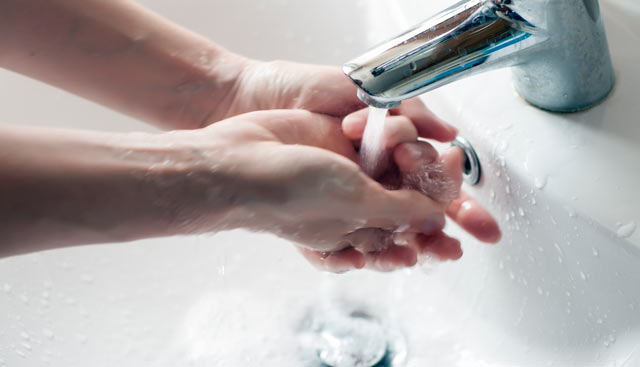
During Handwashing Awareness Week, Here’s a Quick Reminder on How & When to Wash Your Hands
You might be wondering why an entire week has been dedicated to raising awareness of the simple act of handwashing. But, the reasons will likely become clearer when you consider that handwashing is the single most effective way to prevent the spread of infection.
Each day, your hands come into contact with numerous items, surfaces and people. Even though you may not realize it, germs are constantly accumulating on your hands. These tiny but powerful organisms cannot be seen with the naked eye, but given an opportunity, they can infect you. For instance, if you touch your mouth, eyes or nose with unclean hands, you will run the risk of contracting an infectious disease. That’s because bacteria and viruses, such as influenza, E. coli, salmonella and the common cold, can easily enter the human body through its mucous membranes.
Of course, it’s impossible to keep your hands completely germ-free, but frequent hand-washing can help significantly in that regard. A few tips on when to scrub, the best technique and how to encourage your children to develop these habits can go a long way toward protecting your health and that of those around you.
To keep your hands as clean as possible, you should wash them – thoroughly and often – with soap and water. Any kind of soap will do. In fact, antibacterial soap is unnecessary and even discouraged because it can potentially lead to the development of microbial-resistant bacteria. Wet your hands thoroughly with running water, apply soap and rub all surfaces vigorously for a minimum of 20 seconds. Rinse well, and then dry with a clean or disposable towel or air dryer. If possible, use a towel to turn off the faucet.
As a reminder, it’s especially important to wash your hands:
- Before you prepare food, eat, insert or remove contact lenses, take medication, assist a person who is ill or care for a wound
- After you use a restroom, prepare food, handle trash, change a diaper, touch an animal, assist a sick person, treat a wound, cough, sneeze or blow your nose
- Any time your hands look or feel dirty
You can help your children adopt healthy habits by demonstrating proper handwashing techniques for them. Teach them to sing “Happy Birthday” twice as they lather up to encourage them to take their time. If they are too small to reach a sink in your home, place a safe step stool nearby. Also, instruct them not to share personal items like food, cups and lip balm, and to always cough and sneeze into a sleeve instead of their hands.
Handwashing will not only help keep you healthy – it can also save lives, especially those of the elderly, the very young and people who have compromised immune systems due to cancer treatments or other reasons. If you’d like to learn more, you are welcome to talk with the experts at Moffitt Cancer Center. You can request an appointment by calling 1-888-MOFFITT or completing our new patient registration form online. We do not require referrals.
